Surajit Talukdar
Bertil Lintner, a Swedish journalist, author and renowned scholar on Indo-Burmese affairs based in Thailand, has several chances of meeting with some of the dreaded militant leaders of north eastern region in India as well as abroad. He has long been closely following the ever evolving insurgency scenario in the north-east.
He is one of many blacklisted journalists who have not been allowed to enter Burma since 1985. Lintner was the first foreign journalist to learn about Aung San Suu Kyi's release from house arrest in 1995.
In an exclusive e-mail interview to Surajit Talukdar, Lintner talks about the recent peace initiative between ULFA and the government, and how the Myanmar government is not concerned about India's insurgency problem in NE, among other things.
Do you think that the current tripartite agreement for 'suspension of operation' signed in New Delhi among the United Liberation Front of Asom, Centre and Assam government will bring permanent peace in Assam?
It will certainly mean a lot for peace in the north-east and it is my impression that (head of the pro-talks faction of ULFA) Arabinda Rajkhowa is flexible and willing to discuss his demands with the Indian authorities. On the other hand, (head of anti-talks faction of ULFA) Paresh Baruah has vowed to continue the armed struggle, and it is unclear how many followers he has at the moment. But even a small group can create havoc.
Please ...
'Baruah knows too many secrets to join the peace talks'
Image: Bertil Lintner (on the elephant) on his way to an assignment in Kachin State in MyanmarPhotographs: Courtesy: Bertil Lintner
Paresh Baruah is still opposing the peace process initiated by Rajkhowa with the government. So, where will you see the solution lies?
Right now, it's not easy to find out any solution. I think it would be very difficult for Baruah to become a state politician, or even to enter into serious peace talks with the government of India -- unlike Rajkhowa and the others who have much less to hide.
Baruah has always had very close ties to (Bangladeshi intelligence agency) Directorate General of Forces Intelligence, the (Pakistani spy agency) Inter Services Intelligence and the Chinese intelligence, and I doubt whether those entities would allow him to come "over ground" so to speak.
He knows just too many secrets. He would have to watch his back -- for the Pakistanis and the Chinese -- if he decides to join the talks. He is cornered and he knows it, and that makes him potentially quite dangerous as well.
Are you in touch with Arabinda Rajkhowa or Paresh Baruah? What are their views on the solution to the government-ULFA tangle?
I first met most ULFA leaders at the then undivided Nationalist Socialist Council of Nagaland headquarters at Kesan Chanlam in northwestern Burma in 1985. Later, I met Baruah and some other ULFA leaders in Bangkok in March 1992 and in Dhaka in April 1996, and communicated with Rajkhowa by e-mail.
I met all of them again in Bangkok in June 1996, when they had to leave Bangladesh after the Awami League victory in that year.
When I met Baruah in a Bangkok coffee shop in March 1992, he made no secret of the fact that Pakistan supported ULFA and encouraged him and his comrades to step up their activities in Assam. I met Baruah in Dhaka four years later.
It was always my impression that Rajkhowa was much less dogmatic than Baruah, and more interested in Assamese culture and history than in carrying out any violent activity.
'India hopes there won't be a second generation of insurgents in Nagaland'
Image: Lintner interviewing the chairman of the NSCN-IM, Isak Chisi SwuPhotographs: Courtesy: Bertil Lintner
Is the Paresh Baruah-led ULFA faction in touch with any international human rights organisations to further its cause? Where is Baruah hiding these days?
I am not aware of any other foreign connections that Baruah might have right now. He seems to be fairly isolated. The ULFA has been severely crippled as an insurgent force since Rajkhowa and his comrades were released from jail.
I can state with some certainty that he himself is not staying in any jungle camp in northwestern Burma. I have been told by people who once were close to him that he feels completely safe only in China. Beijing doesn't mind him being there, as a tit-for-tat for India allowing the Dalai Lama to have a base in McLeodganj.
What is the recent status of the Indo-Naga peace process? Do you think that the NSCN-Isak Muivah leaders Thuingaleng Muivah and Isak Chisi Swu's dream of curving out a 'Greater Nagalim' will be a reality someday?
Endless peace talks have been held since the 1997 ceasefire with no concessions in sight from the government's side. In 2011, Muivah turned 75 and Swu 82. India is playing a waiting game, wearing them down and hoping that there will be no next generation of insurgent leaders among the Nagas. And, after more than a decade of ceasefire and fairly comfortable camp life at Hebron, Dimapur the ordinary and the NSCN-IM's younger soldiers may not be eager to take on the Indian army.
Nagaland is a land-locked territory with few natural resources. It's not even self-sufficient in food. Given those circumstances, it seems to me not to be a clever policy for any Naga group to have territorial claims. I can't possibly see other non-Naga groups agreeing to the 'Greater Nagalim' demand also.
'Many in north-east feel they are not Indians'
Image: Bertil Lintner with the Naga and Kachin escorts in MyanmarPhotographs: Courtesy: Bertil Lintner
Are you in touch with Muivah and Swu? Are other international organisations supporting the cause of the NSCN-IM?
I met Swu in Bangkok over a year ago, but that is the only contact I have had with NSCN-IM leaders in recent years, apart from meeting sympathisers in Ukhrul in May 2010.
The NSCN-IM has its supporters, mainly some NGOs in the Netherlands, but those groups are not significant.
Do you think the recent peace initiatives taken by New Delhi with several militant groups in the north-east are sufficient to solve the insurgency problem in the trouble-torn region?
It's definitely a good step taken by New Delhi. The expulsion of ULFA leaders from Bangladesh, and the subsequent arrests of Anthony Shimray, the NSCN-IM's main arms procurer, and United National Liberation Front chairman Sana Yaima indicate that India is determined to wipe out insurgency movements in the north-east once and for all to clear the area for trade with Myanmar.
But the ethnic problems in the north-eastern India are not going to disappear even if the militants are neutralised; there are genuine grievances that has to be addressed as well. Many people in the region feel neglected and marginalised. Development has to reach those areas, and their ethnic identities have to be respected. Frankly speaking, many of them feel that they are not Indians.
'Myanmar not interested in India's insurgency problems'
Image: Bertil Lintner with the Manipur's People Liberation Army (PLA) leader Temba Singh in MyanmarPhotographs: Courtesy: Bertil Lintner
Do the Myanmarese rebel groups still provide support to the north-eastern militant groups? Are there NSCN-IM and ULFA camps in Myanmar?
No, they do not have camps in Myanmar. In the past, the Kachin Independence Army trained Assamese and Manipuri rebels, and had contacts with several Naga groups as well. That, however, ceased in the early 1990s.
I know that India's security services believe there's still a connection because they have intercepted radio traffic between ULFA units in Myanmar -- in Jinghpaw, the main language of the Kachins.
ULFA and some Manipuri groups such as the Revolutionary People's Front, Manipur's Peoples Liberation Army, UNLF and Peoples Revolutionary Party of Kangleipak have camps in northwestern Sagaing division in upper Myanmar, as does NSCN-K, but, to the best of my knowledge, not the NSCN-IM which has no support base among the population across the border in Myanmar. The NSCN-K, of course, does have some support from Konyaks and others who live on both sides of the border.
What is Yangon's view on the insurgency scenario in the north-east? Is the Myanmarese government planning to take any action against the Indian insurgent groups which have their bases on their soil?
The Myanmarese government sees it as India's problem. Yangon is not really interested in cooperating with its neighbours when it comes to cross-border insurgencies. It fights insurgents on its own terms and doesn't want to get into the kind of joint operations that India wants.
The Myanmarese government just wants to keep India at arm's length, and is therefore not against having a 'buffer of instability' between themselves (the area in northwestern Myanmar which they control) and the Indian border.

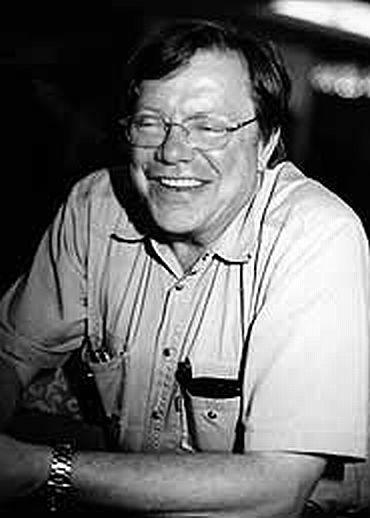
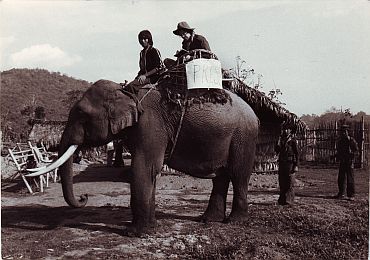
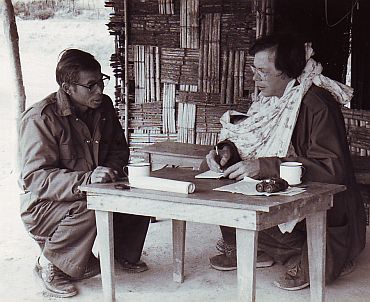
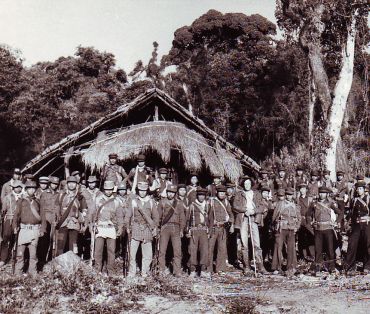
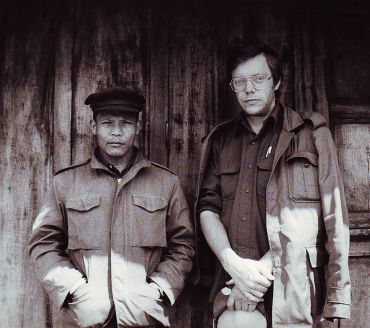
article